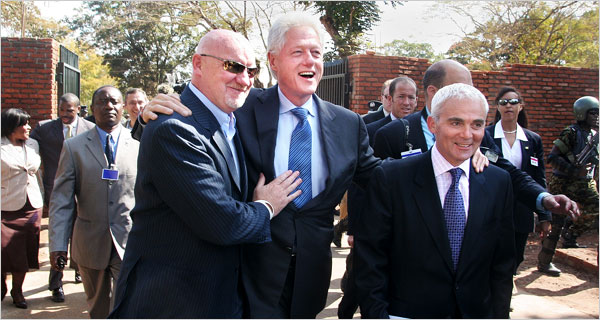How will the Clinton campaign rationalize the losses over the weekend? It’s not pretty. Said Senator Clinton: “‘These are caucus states by and large, or in the case of Louisiana, you know, a very strong and very proud African-American electorate, which I totally respect and understand.’ Noting that ‘my husband never did well in caucus states either,’ Clinton argued that caucuses are ‘primarily dominated by activists” and that “they don’t represent the electorate, we know that.‘” So, “activists” and African-Americans, not “real” Dems. Got it. As for Bill Clinton’s take: “‘Her campaign’s broad appeal is largely to people who need a president,’ Clinton told an audience in Silver Spring’s Leisure World retirement community tonight. ‘Very often they are working and busy and dont go to these caucuses.’” Sure. I guess holding them on a weekend probably didn’t help either. As a commenter at TNR wryly characterized the spin last night: “Clearly there’s been a massive flood of Latte sipping African American knowledge workers into rural Maine.“
Mind you, I’ve said before that caucuses may not be the best way to organize a statewide election. But, given both the breadth and depth of Obama’s leads in caucus states all across the country, Sen. Clinton’s continued losses speak less to the inherent problems of caucusing than to the inherent problems of the Clinton campaign. As I said yesterday, if her campaign is any indication of the managerial talent we can expect from a Clinton presidency, the prognosis is not good. To wit, it’s poorly managed, woefully disorganized, suffers from a lack of “activist” enthusiasm, and — like a certain Republican administration I could mention — clearly had no Plan B. (Also, apparently, Sen. Clinton wasn’t apprised of her dismal funding situation until after Iowa. Another managerial coup.)


